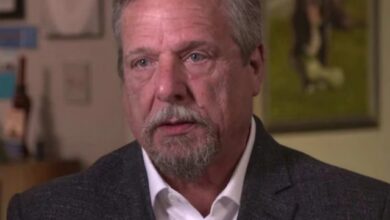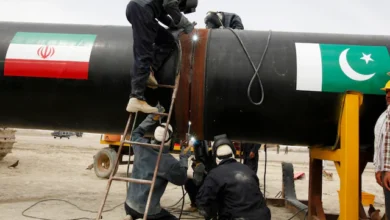China Premier Li is in Shanghai for the export exhibition, hoping to improve his nation’s economic prospects
Chinese Premier Li Qiang Sunday, hoping to infuse enthusiasm into an otherwise dull economy, promised to keep pushing reforms further, open up more free trade zones, and ease market access for foreign investment.
In an attempt to attract thousands of international companies hoping to develop trade and investment with the second-largest economy in the world as well as those wishing to purchase for Chinese goods, Li made these statements during her keynote address at the opening of the 6th China International Import Expo in Shanghai.
According to official figures, China’s GDP grew at an annual rate of 4.9% between July and September, above experts’ projections of around 4.5%. However, compared to the 6.3% annual growth rate of the prior quarter, it was much slower.
The Chinese government has enacted a number of measures to support the economy, including lowering borrowing rates, loosening restrictions on house purchases, and increasing investment on the construction of ports and other infrastructure. However, analysts argue that in order to solve the long-term issues preventing development, more extensive changes are required.
President Xi Jinping inaugurated the expo, which takes place from November 5–10, every year with the goal of enhancing China’s reputation as a proponent of free trade.
“We will continue to create a market-oriented, legal, and international business environment while protecting the rights and interests of foreign investment in compliance with the law,” Li said at the opening.
Foreign companies have expressed dissatisfaction about the deteriorating investment climate in China, especially in light of the enactment of new laws that may classify owning conventional economic projections as espionage. American companies have said that investing in China these days is almost hard to do without incurring big risks.
The Australian Prime Minister Anthony Albanese attended this year’s exhibition. He is now in China on an official visit with the main goal of reestablishing commercial ties that had been cut off for years owing to political and economic unrest.
Since taking office as prime minister, Albanese has insisted that China remove what he called “unjustified” official and informal trade restrictions that cost Australian exporters $20 billion ($13 billion) annually.
Since then, those obstacles have been much lowered, and their current cost is around AUD 2 billion ($1.3 billion).
Before leaving on Saturday, Albanese said, “I look forward to productive conversations and communication with the president and the premier during my visit to Shanghai and Beijing. It is the first visit to our main trade partner in seven years.
Despite its ups and downs, Albanese claimed the relationship was still “based on respect, maturity, and mutual benefit” during a luncheon in Shanghai on Sunday. He said he planned to talk about collaborative responses to climate change, challenges to agriculture, and collaboration in the arts.
According to Albanese, “Australia will engage in our national interest, disagree where necessary, and cooperate where we can.” “In order to navigate the opportunities and challenges our region will face this century, as well as to help secure peace, prosperity, and security in our region and globally, dialogue with China is essential.”
There are around 200 Australian businesses present at the Shanghai show.
China’s ambition to join the 12-nation Comprehensive and Progressive Agreement for Trans-Pacific Partnership, or CPTPP, is unlikely to get support from Australia, according to Albanese, who said that China did not meet the required conditions. Additionally, he has said that when he meets with President Xi Jinping in Beijing, he would raise concerns about China’s lack of openness in handling Australian democracy blogger Yang Hengjun, who is being arrested.
In spite of this, Li said that China will keep working to “actively pursue the Digital Economy Partnership Agreement and CPTPP accession and negotiate the conclusion of more high standard free trade agreements.”







